Fruit Tree Training and Styles
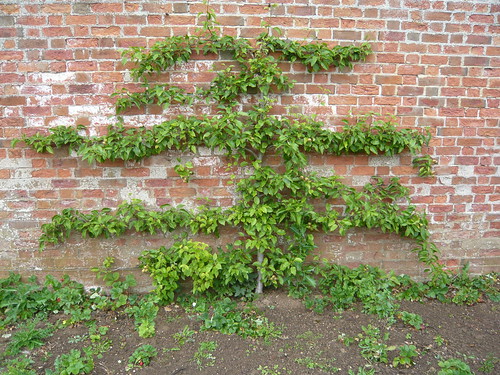
Espalier trained fruit trees can make the best of a south facing wall. In this style of training peaches, nectarines and apricots can be grown.
Large areas can be covered by just one plant.The branches are tied in the horizontal position and pruned to stay in formation.
Space is saved in comparison to a round tree with a central leader by having only a narrow width away from the wall.
Training against a wall or on strong wires using cordons is often a good method for growing Apples.
Chose your variety and root stock with cordons in mind.
This Gooseberry is trained as an upright. This is often called a leg and is used to make picking easier. You can also get more plants into a smaller area. The style and method is the similar to that used for growing a standard.
I wonder how this V shaped cordon is growing on 2 seasons later. You can just see the second branch starting to grow on the left.
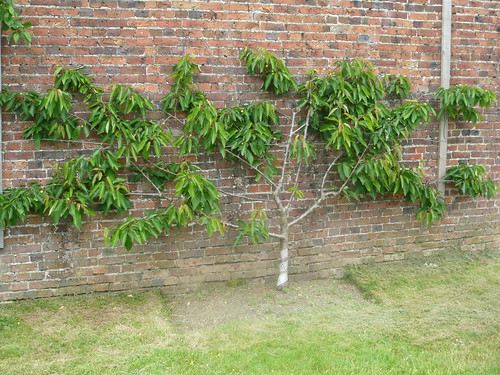
Set amongst grass I notice this wall trained fan shape has an area cut out for watering and feeding.
Do not let the dry area under walls restrict the growth of your trained fruit trees. Feed and water your trained fruit trees at least as well as you would in open ground. The act of training should put the trees energy into fruit production rather than leaf and branch growth.
These ‘Step Over’ apples are only 18″ high. They are used as a boundary surrounding this vegetable plot and you can compare the size to the near by cabbages.
If this style of espalier is grown at the top of an otherwise branchless trunk it is called a ‘Pleached tree’. This is used for creating an aesthetic hedge effect and does little for fruit production.
A series of Cordons on wire supports. Pears can effectively be grown as cordons.
Why Train Fruit Trees
- Sunlight makes fruit tastes better, develop a sweeter flavor with a deeper color than fruit shaded by leaves and branches.
- Branches trained to 60-90 degree angles where they meet the trunk develop more flower buds.
- Spacing the branches up and down the trunk provides good conditions for the fruit to grow and mature.
- Training should put the trees energy into fruit production rather than leaf and branch growth.
- Space can be better utilised to optimise fruit production.
- A well trained tree enhances the looks and appearance of a fruit tree and the garden it is in.
Related
Espalier fruit trees

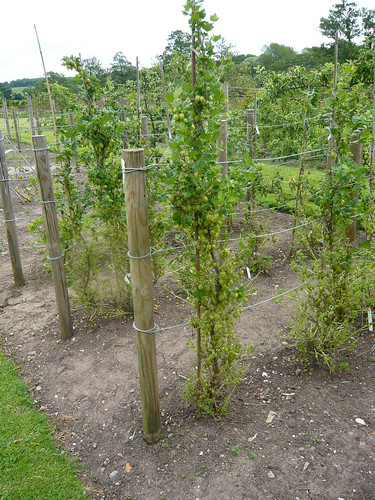
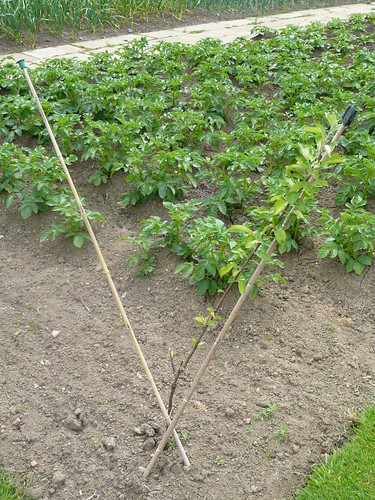
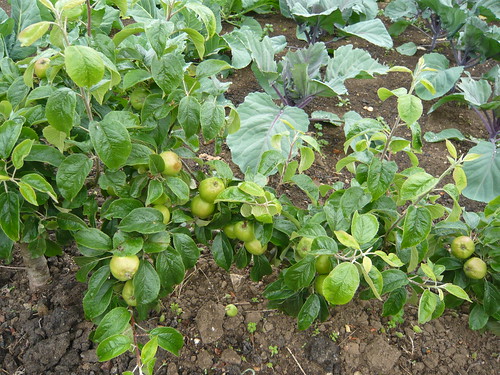
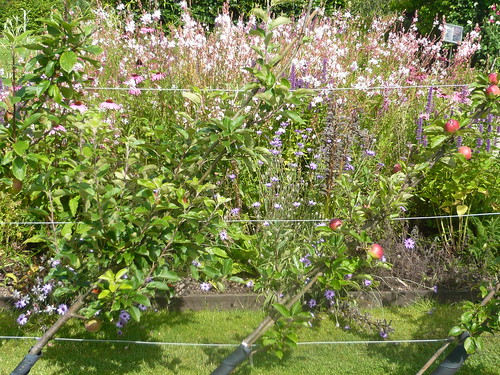
One thought on “Fruit Tree Training and Styles”
Comments are closed.